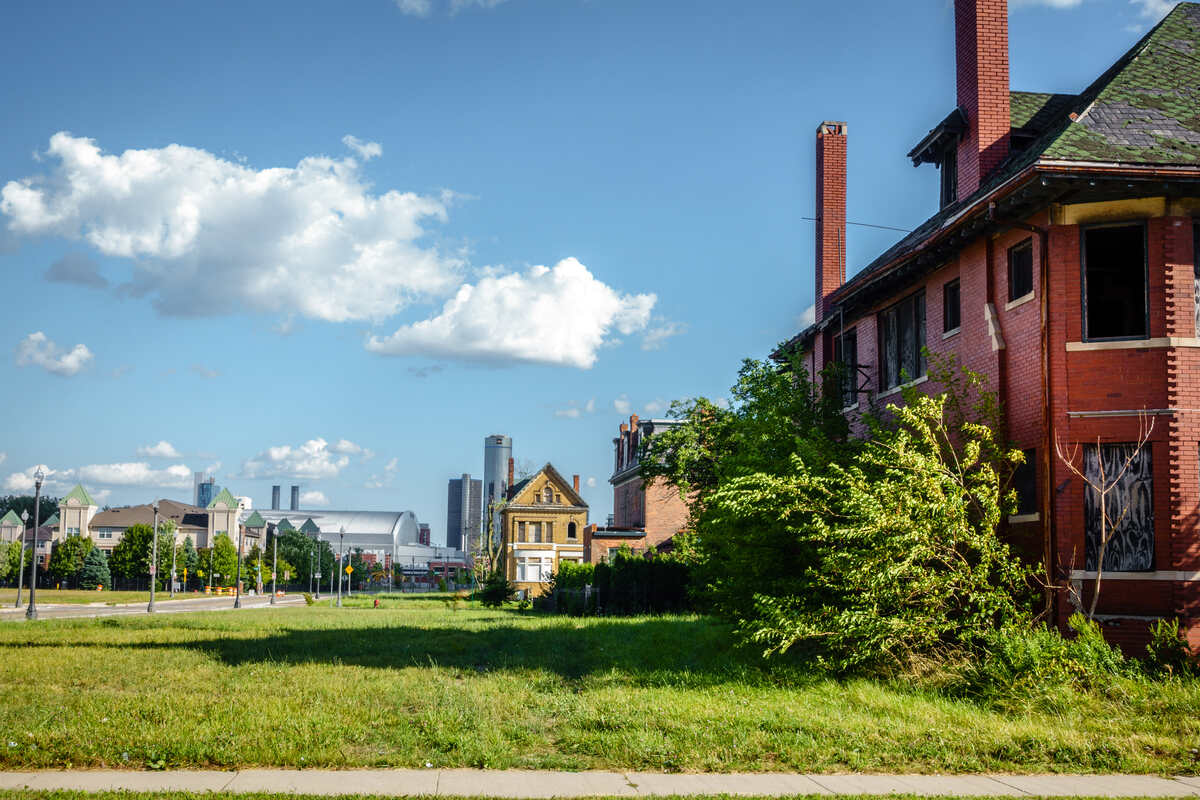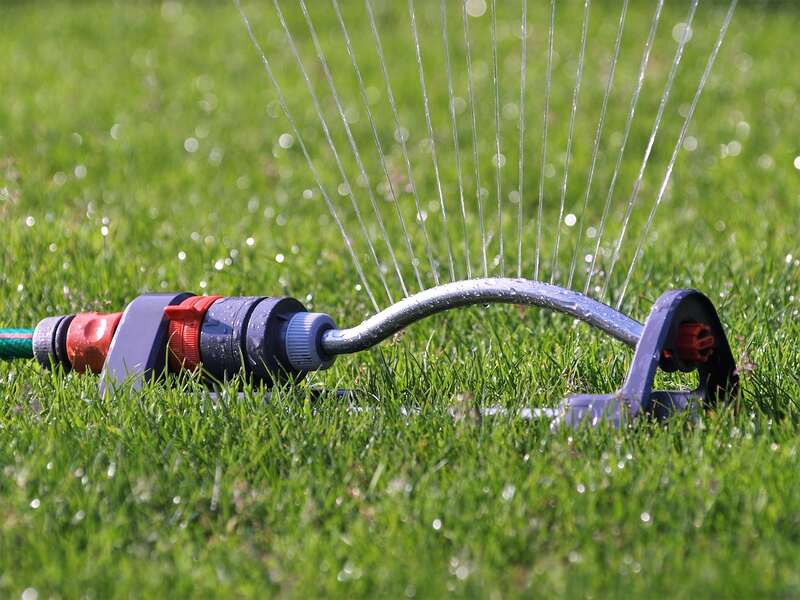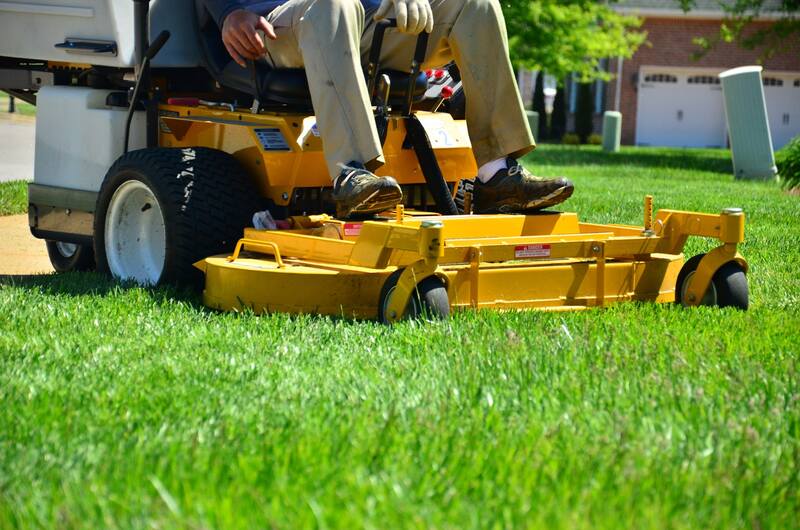
Everyone loves the summertime. Detroit, MI has summer temperatures in the 80s, with less than ten days of precipitation, on average, each summer! That means a lot of swimming and fun in the sun. Summer is time for you to get that lush, green lawn you want to impress the neighbors with.
To ensure you are maintaining your yard correctly, we put together this simple summer lawn care guide for Detroit, MI residents. Make sure you follow these tips for proper lawn maintenance.
1. Make Sure Your Lawn Has Enough Water

Photo Credit: ariesa66 / Pixabay
Detroit, MI lawns are a mixture of cool-season grasses which often require supplemental watering to stay green and actively growing. Detroit receives on average less than three inches of rain during the summer months, but your turf needs 1 ½ inches per week. That means you need to offer light, frequent watering each week. Watering too deeply is a waste because the water quickly goes deeper than the short, summer roots.
Make sure you water during the early morning or early afternoon. Ideally, the grass shouldn’t be wet during the cool evenings because it might lead to fungal diseases.
2. Take Care of Those Weeds
Summer is a great time to use a post-emergent, weed control method. Post-emergent products kill weeds that are already growing, rather than weeds that are still in the seed growing stage. Pay attention to the directions on the bottle. It is best to use weed control on a day that is less than 85 degrees. Check to make sure it won’t rain that day or else all of your weed control measures will be washed away.
3. Understand Grass Dormancy
During hot weather, cool-season grasses tend to go into a dormant state if not watered often. Dormancy does NOT mean your grass is dead. Instead, it is a protective method that lets lawns survive during dry conditions.
Watering your grass often ensures that it doesn’t go into a dormant state, but if you don’t want to bother maintaining it, dormancy is a natural part of the grass life cycle. The dormant season needs a ½ inch of water every two to three weeks. This amount of water doesn’t cause your grass to turn green, but it does keep it alive.
4. Mow Your Lawn

Photo Credit: PickPik
One of the most important things you must do is remember to mow your grass each week. Improper mowing can cause a stressed lawn, which isn’t good. Here are some tips.
- Sharpen your mower blades to prevent tearing of the grass blades. Grass blades that are torn and not cut cleanly are more likely to lose water and turn brown.
- Cutting to proper summer mowing height is important to reduce stress. Most grasses do well with a height up to 3 inches. Cutting grass too short speeds evaporation and encourages weed seed germination.
- Remove one-third of the growth at a time.
- Leave your grass clippings behind on your lawn afterward, allowing them to break down naturally. Doing so returns nutrients and nitrogen to your turf, leading to a richer lawn.
5. Should You Fertilize or Not?
You might wonder if fertilizing during the summertime is a good idea. In general, fertilization during the summer should be limited. A dormant lawn isn’t actively growing, so there is no reason to add fertilizer. Wait until the lawn comes out of dormancy to apply fertilizer.
For lawns that are watered regularly and stay green throughout the summer, summer fertilization can be beneficial. Apply a summer fertilizer at lower rates because summer grass tends to grow slower. Look for fertilizers labeled for summer turf application to ensure it contains less nitrogen per application.
The best time to apply fertilizer during the summer is in late August to early September. During this period, Detroit experiences cooler nights and more frequent rainfall. The nutrients from the fertilizer will encourage growth as the plants enter an active period of growth.
6. Watch for Grubs
One of the most common lawn pests in Detroit, MI is grubs. Grubs are a huge problem for homeowners and can lead to excessive turf damage. These pests feed on the root system of the grass in early July. It is best to try to control grubs through preventive measures.
Simple practices can discourage grub infestations. For example, make sure you water because well-watered lawns survive grub issues better than unwatered turf. Raise your mowing height because allowing your grass to grow encourages roots to sink deeper into the soil, away from grub activity.
When to Hire a Lawn Care Pro
If you can’t squeeze all these lawn care steps into your schedule, consider hiring a Detroit lawn care pro. Our LawnStarter pros can do some or all of these steps for you so you have more time for summer fun.
More Detroit Lawn Care and Landscaping Resources:
A Guide to Fall Lawn Care in Detroit
How to Winterize Your Detroit Garden
Landscape Improvements to Increase Your Detroit Home’s Resale Value
Main Image Credit: Alexey Stiop / Adobe Stock Free / License